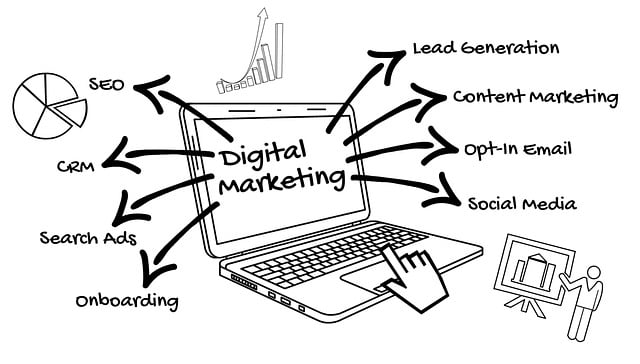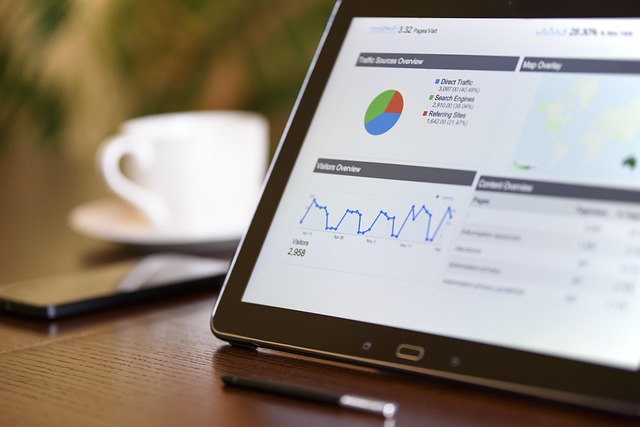AI Robotic Process Automation (RPA) is revolutionizing the restaurant industry by automating rule-based tasks, especially AI energy efficiency audits. These bots mimic human decision-making to optimize energy usage and reduce costs through data collection, analysis, and improvement suggestions in lighting, HVAC, and kitchen equipment operations. By freeing up employees from repetitive tasks, RPA enhances productivity and contributes to a more sustainable and efficient restaurant business model. AI energy efficiency audits have the potential to significantly reduce costs, enhance sustainability, and align with growing environmental concerns, making them a game-changer for the industry.
“Welcome to the intersection of artificial intelligence (AI) and business process automation. This article explores how AI-driven robotic process automation (RPA) is transforming industries, with a specific focus on its potential in restaurant operations. We delve into ‘AI energy efficiency audits for restaurants,’ uncovering the benefits and applications that can streamline workflows, reduce costs, and enhance sustainability. By implementing these strategies, the restaurant industry can stay competitive while improving overall operational efficiency.”
- Understanding AI Business Robotic Process Automation (RPA)
- AI Energy Efficiency Audits for Restaurants: Potential Benefits and Applications
- Implementing AI RPA: Strategies for Success in the Restaurant Industry
Understanding AI Business Robotic Process Automation (RPA)

AI Business Robotic Process Automation (RPA) is a game-changing technology that utilizes artificial intelligence to automate repetitive, rule-based tasks within businesses. By mimicking human actions and decision-making processes, RPA bots can handle various jobs, from data entry and invoice processing to inventory management and even AI energy efficiency audits for restaurants. This technology significantly enhances operational efficiency by reducing human error, increasing productivity, and freeing up employees to focus on more strategic responsibilities.
In the context of restaurants, RPA can optimize energy usage and reduce costs through automated audits. These bots can collect and analyze data from various systems, identify inefficiencies, and suggest improvements in lighting, HVAC, and kitchen equipment operations. By automating these tasks, restaurants can achieve better energy management, leading to cost savings and a more sustainable business model.
AI Energy Efficiency Audits for Restaurants: Potential Benefits and Applications

AI energy efficiency audits have the potential to revolutionize the restaurant industry, offering significant benefits in terms of cost savings and sustainability. By leveraging advanced algorithms and machine learning techniques, AI systems can meticulously analyze a restaurant’s energy consumption patterns, identifying areas of inefficiency and suggesting targeted improvements. This proactive approach enables restaurateurs to optimize their energy usage, reducing utility bills and carbon footprint simultaneously.
One of the key applications involves automated data collection and analysis. AI-powered sensors and software can track energy usage in real time, from kitchen equipment to lighting systems. This granular level of insight allows for precise adjustments, such as optimizing temperature settings in refrigeration or implementing smart lighting schedules. As a result, restaurants can achieve substantial energy savings without compromising on food quality or customer experience.
Implementing AI RPA: Strategies for Success in the Restaurant Industry

Implementing Artificial Intelligence (AI) Robotic Process Automation (RPA) in the restaurant industry offers a pathway to increased efficiency and cost savings, with a particular focus on AI energy efficiency audits. These audits leverage AI algorithms to identify areas for improvement in energy consumption, aligning with the growing emphasis on sustainability. By automating routine tasks, such as data collection and analysis, RPA can free up staff time for more strategic roles, enhancing overall operational performance.
Successful integration involves a strategic approach. Restaurants should start by identifying repetitive, time-consuming processes suitable for automation, like inventory management or staff scheduling. Next, invest in training to ensure employees understand the benefits of RPA. Collaborating with AI specialists can facilitate the selection and implementation of tailored solutions, ensuring they integrate seamlessly into existing systems. This holistic strategy maximizes the potential for AI RPA to drive efficiency gains, reduce costs, and enhance environmental sustainability in the restaurant sector.
AI Business Robotic Process Automation (RPA) offers significant potential for the restaurant industry, particularly through AI energy efficiency audits. By leveraging RPA, restaurants can streamline operations, reduce costs, and minimize waste. These audits not only identify inefficiencies but also provide actionable insights to enhance overall energy management. Implementing AI RPA strategies tailored to the unique needs of the restaurant sector can drive substantial benefits, making it a game-changer for sustainability and profitability in this dynamic industry.
